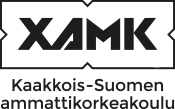Strategic management (5 cr)
Code: IB00EC60-3001
General information
Enrollment
06.04.2022 - 02.09.2022
Timing
05.09.2022 - 31.12.2022
Number of ECTS credits allocated
5 op
Virtual portion
3 op
RDI portion
3 op
Mode of delivery
40 % Contact teaching, 60 % Distance learning
Campus
Kouvola Campus
Teaching languages
- English
Seats
20 - 40
Degree programmes
- Degree Programme in Digital International Business
Teachers
- Jagat Kunwar
Teacher in charge
Jagat Kunwar
Groups
-
IBKV20SP1Digital international business, full-time studies
-
IBKV20SP2Digital international business, full-time studies
Objective
You are able to analyze both external and internal determinants of sustainable competitive advantage.
You are able to identify and respond to opportunities and threats in the external environment.
You learn how to develop structures and processes leading to the successful implementation of organizational strategies.
You are able to initiate and manage strategic change programs.
You are able to use analytical tools to support strategic decision making in practice.
You learn how to create, implement and assess strategies for profit and non-profit businesses.
You learn practically how to deal with complex strategic issues and make “big picture” decisions.
Content
What is sustainable competitive advantage and what are its sources?
How do organizational structures and existing processes affect the implementation and success of organizational strategies?
How to manage strategic change in organizations?
How to sense and respond to the changing environment?
What kind of tools can be used to generate and implement new organizational strategies?
How to create, implement and assess strategies for profit and non-profit businesses?
How to deal with complex strategic issues and make “big picture” decisions in business?
Materials
(1) Lecture notes from the instructor
(2) Following two books:
(a) Johnson, G., Scholes, K. & Whittington, R., 2008. Exploring Corporate Strategy. 8th ed. Essex: Pearson Education Limited.
(b) Mintzberg, H., Ahlstrand, B. & Lampel, J., 1998. Strategy Safari: A Guided Tour Through The Wilds of Strategic Management. New York: The Free Press.
(3) A set of articles to augment specific sections of the two books. These articles are accessible in the course homepage.
Teaching methods
At the end of the study unit, students should be able to:
• Appreciate variety of approaches to strategy and strategizing in contemporary literature
• Analyze the determinants of sustainable competitive advantage both external and internal to the organization
• Differentiate strategic decision making at varying organizational levels
• Identify and respond to key innovative developments in the marketplace
• Explain how organizational structures and processes affect implementation and success of organizational strategies
• Identify and assess key issues in the design of strategic change programs
• Use analytical tools to support strategic decision making in practice
Employer connections
During the course,
(1) You will apply strategic management thinking to solve business problems in various cases.
(2) You will use strategic management tools to diagnose and propose solutions to problems faced by organizations of your choice.
Exam schedules
The maximum number of points obtainable from the course is 100.
Assignment 1-5 each comprising of 10% are end of section tasks.
Assignment 6 comprising of 25% is end of learning module task.
Assignment 7, comprising of additional 25% is synthesis of reflections throughout the course.
Be aware that the workload towards the end is considerable as it involves reading extensive course literature. Please plan accordingly.
The grading will be conventionally done in a scale from 1-5, 5 being the best.
Student workload
The maximum number of points obtainable from the course is 100.
Assignment 1-5 each comprising of 10% are end of section tasks.
Assignment 6 comprising of 25% is end of learning module task.
Assignment 7, comprising of additional 25% is synthesis of reflections throughout the course.
Be aware that the workload towards the end is considerable as it involves reading extensive course literature. Please plan accordingly.
The grading will be conventionally done in a scale from 1-5, 5 being the best.
Further information
The course consists of F2F meetings. Only some sessions can be implemented virtually.
Evaluation scale
1-5
Assessment methods and criteria
The maximum number of points obtainable from the course is 100.
Assignment 1-5 each comprising of 10% are end of section tasks.
Assignment 6 comprising of 25% is end of learning module task.
Assignment 7, comprising of additional 25% is synthesis of reflections throughout the course.
Be aware that the workload towards the end is considerable as it involves reading extensive course literature. Please plan accordingly.
The grading will be conventionally done in a scale from 1-5, 5 being the best.
